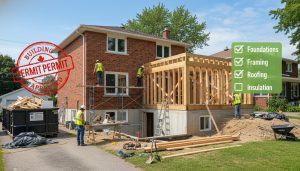Should I consider rental potential when buying?
Should I consider rental potential when buying? Buy without this and you may lose cash flow, profit, and resale leverage.
Why rental potential matters more than buyers think
Buying a property is two decisions in one: can it cash flow now, and will it resell well later. Ignore rental potential and you accept one of two bad outcomes: negative cash flow or a slower sale at a weaker price. Smart investors treat rental potential as an essential filter before they sign.
Quick metrics to use right now
- Cap Rate = (Annual Net Rent) / Purchase Price. Aim for a cap rate that fits your market: 4–8% in suburban or secondary markets; 2–4% in dense urban cores.
- Cash-on-Cash = (Annual Cash Flow) / Cash Invested. Use this to compare financing structures.
- 1% Rule (rough guide): Monthly rent ≥ 1% of purchase price for basic cash-flow sanity.
- Gross Rent Multiplier (GRM) = Purchase Price / Annual Rent. Target GRM under 12 in many markets; higher in expensive cores.
These are not gospel. They are filters. If a property fails more than one, pause.

Data-backed reason to prioritize rental potential
Rental demand and resale value are linked. Properties that perform as rentals attract more buyers on resale — investors, owner-occupiers chasing income, and developers looking for conversions. Historical market cycles show rental-strong properties hold value better in downturns. Vacancy rates, rent growth, and yield drive buyer interest. A property with stable 3–5% rent growth and low vacancy (below local average) will resell faster and often at a premium.
Checklist to evaluate rental potential (do this before you bid)
- Rent comps: Pull 10 comparable rentals within a 1–2 km radius.
- Vacancy trends: Check municipal or CMHC vacancy rates for the neighbourhood.
- Tenant profile: Students, young professionals, families — each affects turnover and wear.
- Operating costs: Insurance, utilities, maintenance, property management fees — run a conservative 10–30% expense buffer.
- Zoning & bylaws: Confirm legal rental uses, short-term rental rules, and accessory unit permissions.
- Renovation ROI: Estimate capital improvements and the payback period via increased rent.
How rental potential affects resale value
Buyers pay for income. A ready-made rental history and clean financials shorten time on market and increase leverage in negotiation. Lenders and investors favor properties with documented rent rolls. That turns rental potential into a resale accelerator.
Final direct advice
If your purchase is an investment, run rental models first. Treat rental potential as a non-negotiable filter. Use cap rate, cash-on-cash, and local rent trends. If you want a second opinion, ask a local expert who analyzes deals, not listings.
Tony Sousa is the local market expert who runs these models daily. For deal analysis, rental-ready strategies, or a fast comparative rental report, email tony@sousasells.ca or call 416-477-2620. Visit https://www.sousasells.ca for sample reports and market notes.





















